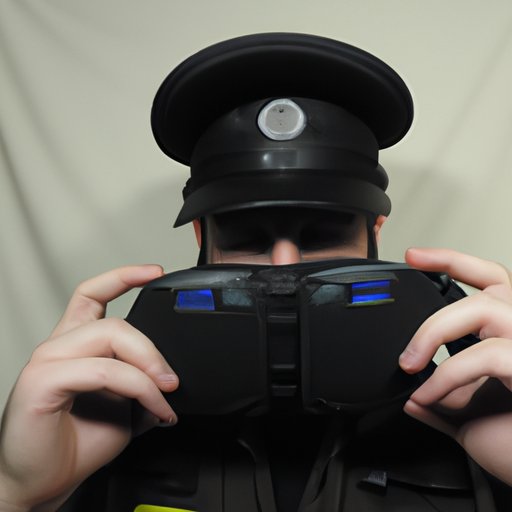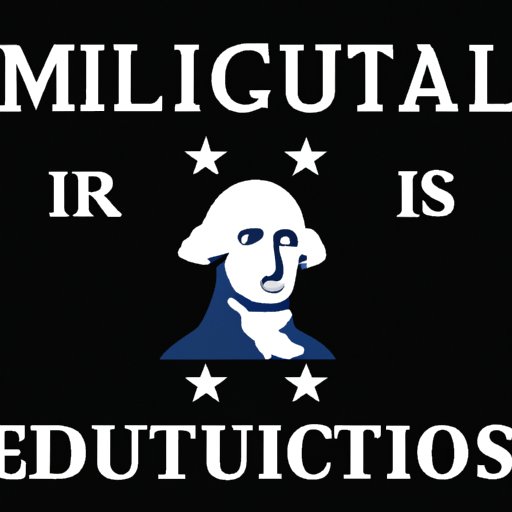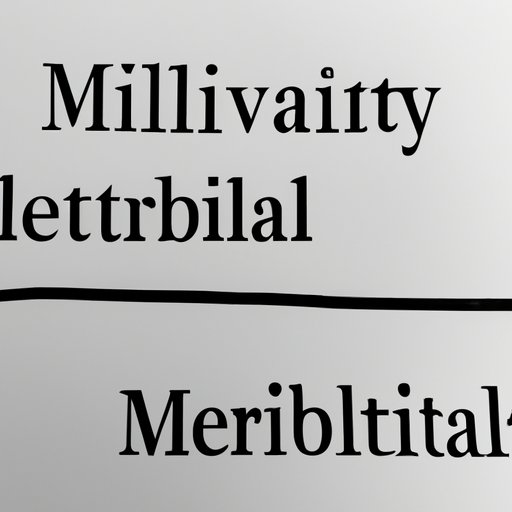Introduction
The Second Amendment to the United States Constitution states that “a well regulated Militia, being necessary to the security of a free State, the right of the people to keep and bear Arms, shall not be infringed” (U.S. Const. amend. II). This single sentence has been at the center of one of the most contentious debates in American politics. What does “well regulated militia” mean? How do these words affect the interpretation of the entire amendment? To answer these questions, it is necessary to explore the history and purpose of a well-regulated militia.
Examining the Meaning of “Well Regulated Militia” in the Second Amendment
The language of the Second Amendment is often confusing and open to interpretation. In order to understand what the authors of the Constitution meant by “well regulated militia,” it is important to consider the context in which the amendment was written. During the late 18th century, the newly formed United States was in a precarious position. The country was facing the threat of invasion from both native tribes and foreign powers, so it was essential that the population be prepared to defend itself. This led to the creation of state militias, which were citizen-soldiers who could be called upon to fight in times of need.
In addition to providing defense against external threats, the Founding Fathers also saw the militias as a way to protect citizens from their own government. As James Madison wrote in Federalist 46, “the advantage of being armed, which the Americans possess over the people of almost every other nation…forms a barrier against the enterprises of ambition, more insurmountable than any which a simple government of any form can admit of.” By giving citizens the power to defend themselves, the authors of the Constitution hoped to ensure that the government could not oppress its own people.

Exploring the Role of a Well Regulated Militia in Modern Times
Militias have played an important role in American history since colonial times. During the Revolutionary War, patriot militias helped defeat the British forces and secure independence for the colonies. In the 19th century, state militias were used to put down rebellions and enforce the law. Even today, the National Guard serves an important purpose in providing defense and disaster relief during emergencies.
The modern National Guard is a far cry from the militias of the 18th century. While the original militias were composed of ordinary citizens, the National Guard is a professional military force that is subject to federal control. However, the National Guard still serves the same purpose as the original militias: to provide a defense against foreign and domestic threats.

How the Founding Fathers Defined a Well Regulated Militia
The Founding Fathers had strong opinions about the role of a well regulated militia. James Madison argued that “[a] standing military force, with an overgrown Executive will not long be safe companions to liberty.” He believed that a well regulated militia was essential for protecting citizens from the tyranny of their own government. George Washington also viewed the militias as a check on government power, writing that “[t]o be prepared for war is one of the most effectual means of preserving peace.”
Thomas Jefferson took a different view, arguing that the militias should be under the control of the states rather than the federal government. He feared that federal control of the militias would lead to increased centralization of power and eventually to the loss of state sovereignty. This debate between state and federal control of the militias continues to this day, with many arguing that the federal government should have more control over the National Guard.

The Impact of a Well Regulated Militia on Civil Liberties
The debate over the Second Amendment has become increasingly heated in recent years, with many arguing that the right to bear arms is an essential civil liberty. Supporters of gun rights point to the language of the amendment, noting that the authors specifically mentioned a “well regulated militia” in order to protect the right of citizens to keep and bear arms. Opponents of gun rights argue that the amendment does not guarantee an individual right to bear arms and that the mention of a “well regulated militia” is simply an antiquated reference to the militias of colonial times.
The debate over the Second Amendment has also had an impact on other civil liberties. Many opponents of gun rights argue that the proliferation of firearms in society has led to increased violence and decreased respect for human life. Supporters of gun rights counter that guns are necessary for self-defense and that people should be allowed to protect themselves from criminals. This debate has implications for other civil rights, such as freedom of speech and the right to privacy.
Debating the Significance of a Well Regulated Militia in Today’s Society
Today, the debate over a well regulated militia continues, with many arguing that the concept is outdated and no longer relevant. Proponents of gun rights argue that a well regulated militia is still essential for protecting citizens from their own government. They cite the example of the National Guard, which is a professional military force that is still subject to state control. Opponents of gun rights argue that the Second Amendment should be interpreted as guaranteeing an individual right to bear arms, regardless of whether or not there is a militia in place.
The debate over the Second Amendment is likely to continue for many years to come. As the Supreme Court has noted, the language of the amendment is open to interpretation and the original intent of the authors is difficult to ascertain. It is important to consider all sides of the debate in order to gain a full understanding of the importance of a well regulated militia in today’s society.
Conclusion
The Second Amendment is one of the most contentious issues in American politics. The debate centers on the meaning of “well regulated militia,” which has been interpreted in various ways over the years. The Founding Fathers viewed the militias as a way to protect citizens from their own government, while modern proponents of gun rights argue that the amendment guarantees an individual right to bear arms. Regardless of one’s opinion on the issue, it is clear that the concept of a well regulated militia has been an integral part of American history and continues to play an important role in our society today.
(Note: Is this article not meeting your expectations? Do you have knowledge or insights to share? Unlock new opportunities and expand your reach by joining our authors team. Click Registration to join us and share your expertise with our readers.)
